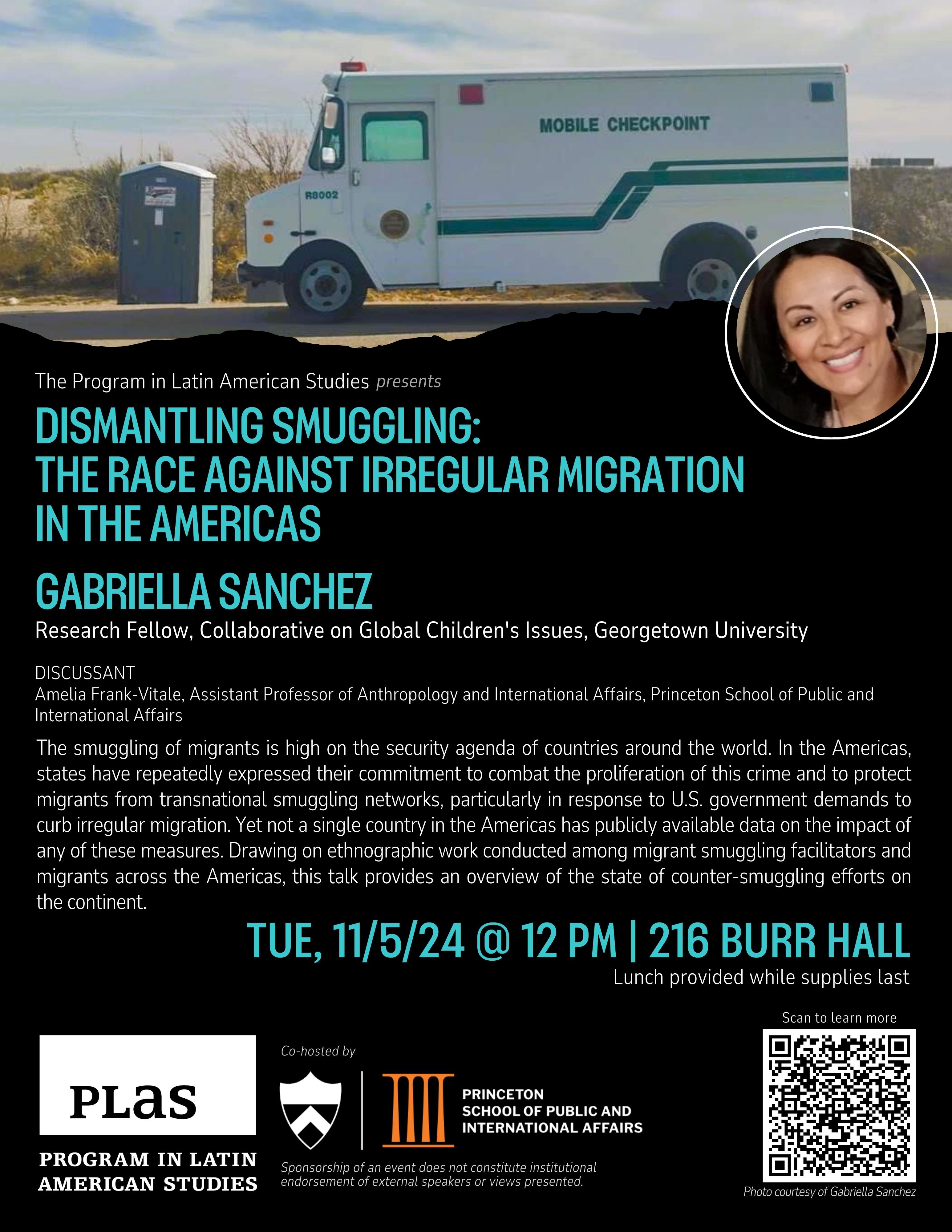
Details
The smuggling of migrants is high on the security agenda of countries around the world. In the Americas, states have repeatedly expressed their commitment to combat the proliferation of this crime and to protect migrants from transnational smuggling networks, particularly in response to U.S. government demands to curb irregular migration. Yet not a single country in the Americas has publicly available data on the impact of any of these measures. Little is known about those who are ultimately prosecuted for the crime. Most remarkably, while millions of U.S. dollars have been allocated to combat the scourge of smuggling, states have no indicators or accountability mechanisms that can attest to the effectiveness of the fight against "smugglers. Drawing on ethnographic work conducted among migrant smuggling facilitators and migrants across the Americas, this talk provides an overview of the state of counter-smuggling efforts on the continent. Through a critical reading of the dominant smuggling and counter-smuggling scripts, Sanchez shows how the facilitation of irregular migration for profit -- a radical form of care and a high-risk form of labor by the poor -- has been coded as organized crime for the advancement of migration control.
ABOUT OUR GUEST SPEAKER
A research fellow at Georgetown University's Collaborative on Global Children's Issues, Gabriella Sanchez is a border control and migration enforcement scholar.Trained as a sociocultural anthropologist and with a background in law enforcement, she has written extensively about migration related crimes, drawing from her direct work with migrant communities in the Americas, North Africa, and Europe. Her ethnographic work explores the facilitation of irregular migration for profit (a practice legally known as migrant smuggling), and the discursive strategies and enforcement practices states deploy to contain the crime around the world.
DISCUSSANT
Amelia Frank-Vitale, Assistant Professor of Anthropology and International Affairs, Princeton School of Public and International Affairs
This event is open to students, faculty, visiting scholars and staff. Lunch will be provided while supplies last.
Sponsorship of an event does not constitute institutional endorsement of external speakers or views presented.


